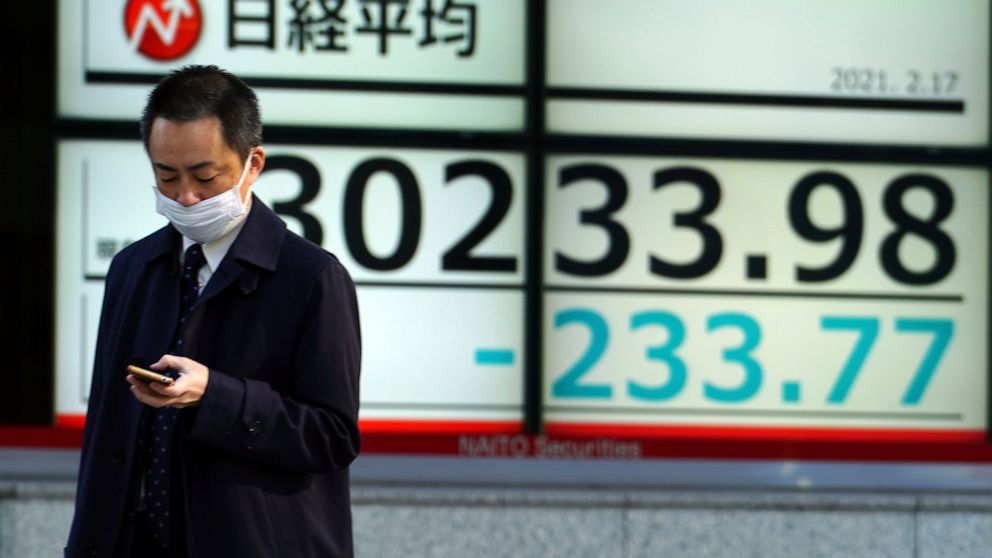Stocks end mostly lower on Wall Street, led by drops in tech
Stocks ended mostly lower on Wall Street Wednesday as losses by technology and industrial sector companies offset gains in other parts of the market
TOKYO — Stocks ended mostly lower on Wall Street Wednesday as losses by technology and industrial sector companies offset gains in other parts of the market. The S&P 500 edged down less than 0.1%, while the tech-heavy Nasdaq gave back 0.6%. Small-company stocks also fell. The Dow Jones Industrial Average rose thanks in large part to gains in Verizon Communications and Chevron. Those two stocks climbed after Warren Buffett’s Berkshire Hathaway said it made major new investments in them in the second half of last year. The yield on the 10-year Treasury note held near its highest level in a year.
THIS IS A BREAKING NEWS UPDATE. AP’s earlier story follows below.
Stocks were moving lower in afternoon trading Wednesday, as investors digested data showing the U.S. economy is in need of more stimulus. Energy prices were steady after rising sharply the day before, due to the frigid weather that’s impacted much of the U.S.
The S&P 500 index was down 0.2% as of 2:48 p.m. Eastern, dragged down by technology and industrial companies. The Dow Jones Industrial Average rose 68 points, or 0.2%, to 31,590, a day after hitting an all-time high. The technology-heavy Nasdaq was down 1%.
Two stocks in the Dow that were helping the index were Verizon Communications and Chevron. Warren Buffett’s Berkshire Hathaway investment company announced it made significant new investments in those companies.
The Commerce Department said U.S. retail sales soared a seasonally adjusted 5.3% in January from the month before. It was the biggest increase since June and much larger than the 1% rise Wall Street analysts had expected. The jump was largely driven by the $600 stimulus checks that went out to most Americans in late December and early January. The data shows that recession-hit Americans are eager to spend cash on necessities, and aren’t saving the funds — which is the goal of stimulus checks.
It potentially means that additional stimulus, likely in the form of $1,400 checks in the $1.9 trillion stimulus plan, will likely provide a necessary boost to the economy. Optimism that Washington will come through on trillions of dollars of more aid for the economy and encouraging company earnings reports have helped stocks grind higher this month, along with hopes that the coronavirus vaccine rollout will set the stage for stronger economic growth in the second half of this year.
“We’re keeping this economy humming despite the last several weeks, which have been really challenging,” said Katie Nixon of Northern Trust. “That’s notable, it’s a clue to what will happen if we get an additional stimulus package.”
Later Wednesday investors will be looking over minutes from the Federal Reserve’s last policy meeting, held in January. It will be a chance to see what the central bank expects for inflation.
The yield on the 10-year Treasury rose to 1.30% from 1.29% from late Tuesday, the highest level in a year. The rise in bond yields has raised some concerns about the potential for higher inflation, but has also been a sign that the prospect for economic growth remains good.
“I don’t know when inflation is going to increase but the bond market is starting to tell you that the economy is accelerating,” said Andrew Slimmon, portfolio manager at Morgan Stanley Investment Management. “As we’re coming out of COVID-19, as people get vaccinated, consumer confidence is growing at a time when we have a tremendous amount of cash on the sidelines.”
———
AP Business Writer Ken Sweet contributed.
![]()


